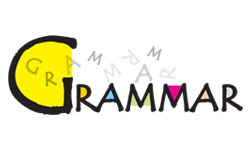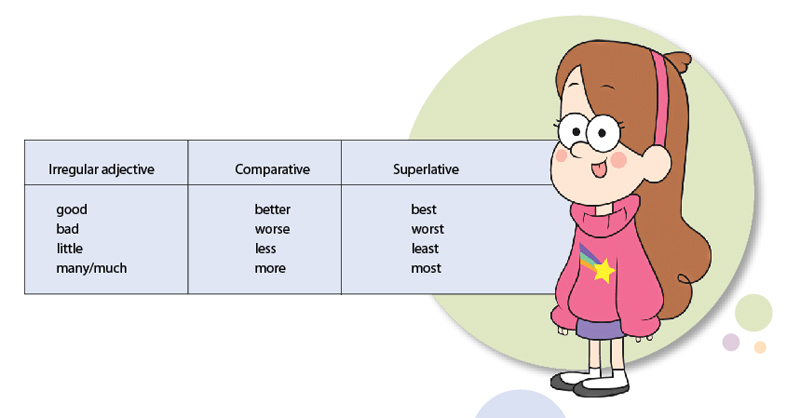
 Grammar points
Grammar points
1.Some adjectives have their own comparative and superlative forms. We cannot add ‘er’, ‘est’, more or most to them.

(a) We use an adjective ending in ‘ing’ to describe a thing or situation.
verb + ‘ing’ ending = adjective
(b) We use an adjective ending in ‘ed’ to describe how a person or an animal feels.
verb + ‘ed’ ending = adjective
Examples: excite: Helen gave her brother a new bicycle.
The excited boy showed the bicycle to all his friends.
(a) That man’s temper is 1 ............................ (bad) his wife’s but their son George has 2 .......................... (bad) temper in the house.
(b) Ken gets $50 a month as pocket money. Richard gets 3 ................................ (much) him. He gets $70 a month.
(c) It is not 4 ................................ (good) to borrow money. It is even 5 ................................. (bad) to borrow money and then not return it.
(d) This month, Helen made 6 ............................... (much) sales among the sales executives in our company. That was surprising because the previous month she had done 7 ........................... (little) work among them.
(e) William has 8 ................................ (little) gardening experience than Peter but his flower-beds are 9 ................................. (good) Peter’s. In fact, Mr. Jones the landscape architect thinks William is 10 ................................... (good) all his other gardeners.
.......................................................
Answers: 1. worse than 2. the worst 3. more than 4. good 5. worse 6.the most 7. the least 8. less 9. better than 10. better than (Grammar Builder 2)
